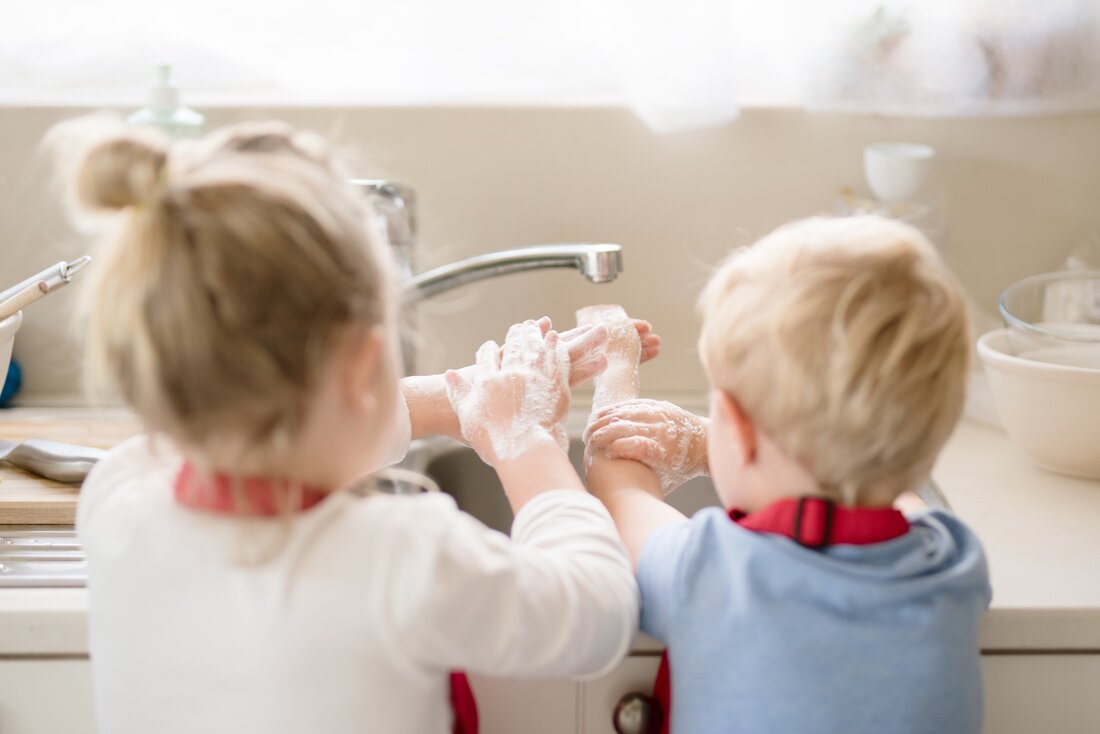"Thomas Jefferson said a democracy is dependent on an informed citizenry. I don't care whether it sounds corny or not. It's the truth." -Jim Lehrer
Carefree Truth
Issue #823, April 18, 2020
Issue #823, April 18, 2020
Antibacterial Soap vs. Regular Soap: Which Should You Be Using?
Meghan Jones
Updated: Apr. 10, 2020
Turns out when it comes to fighting the novel coronavirus—and in general—there's a clear winner.
Meghan Jones
Updated: Apr. 10, 2020
Turns out when it comes to fighting the novel coronavirus—and in general—there's a clear winner.
NICKYLLOYD/GETTY IMAGES
The worldwide spread of COVID-19 understandably has scores of people reconsidering their everyday cleaning habits. It’s tempting to reach for what appears to be the strongest possible cleaning product available, which might lead you to wonder if you need to be washing your hands with soap that specifically says “antibacterial.” Will using an antibacterial hand soap be more effective at fighting the novel coronavirus?
Antibacterial vs. regular soap
Antibacterial soap is not any more beneficial at destroying COVID-19 than regular hand soap. Why and what’s the difference between the two in the first place?
Antibacterial soap “contains extra chemicals designed to kill or inhibit the replication of bacteria,” explains Kasey Nichols, NMD, the medical contributor for RAVEReviews.org. That sounds good, but it turns out that all those chemicals don’t actually provide any extra power when it comes to fighting viruses. “Antibacterial soaps target bacteria, and coronavirus is a virus. So an antibacterial soap is unnecessary,” says Morton Tavel, MD, clinical professor emeritus of medicine at Indiana University School of Medicine. Here are some household products that do kill the coronavirus.
Even when not just dealing with the coronavirus, antibacterial soap isn’t any more beneficial than regular soap. The Food and Drug Administration (FDA) has yet to find any evidence that antibacterial soaps are more effective than any other type of soap. Regular soap gets the job done—even when that “job” is killing the novel coronavirus.
How does soap kill the virus?
You might still be skeptical. After all, this virus is so nefarious that it’s easy to doubt that just plain soap could negate it. Well, fortunately, it can!
Technically, “soap is not designed to kill germs on contact, but rather to wash germs away,” explains Dr. Tavel. Essentially, soap does what water can’t—it breaks down the fatty membrane that viruses have around them, causing the whole virus to break down. That membrane repels plain water similarly to the way oil does. Introduce soap and its ingredients, called surfactants, which attracts the contents of the membrane, causing it to break down. “The surfactants in soap lift up and break apart dirt and microbes from your skin, and the friction of rubbing your hands together helps remove the particles so they get washed down the drain,” Dr. Tavel explains.
This process takes time, which is why it’s so important to wash your hands for at least 20 seconds. Pair regular soap with the thorough washing of your hands, and viruses are removed from your hands and washed away—no fancy chemicals needed. Find out which coronavirus products are a total waste of money.
Is antibacterial soap dangerous?
Well, the jury’s still out on that subject. But the FDA has definitely found a couple of valid causes for concern when it comes to using antibacterial soap. One of the most common antibacterial agents is triclosan, which has been shown in some animal trials to alter hormone function. Its effects have undergone investigation from both the FDA and the Environmental Protection Agency (EPA).
That’s not all. “There has also been concern surrounding whether or not antibacterial soap chemicals are causing bacteria to become more resistant to these chemicals and other antibacterial drugs,” Dr. Nichols explains. Basically, the very bacteria that these soaps are supposed to kill might instead be evolving to become stronger and fight them.
Unless you’re someone who already buys antibacterial soap, you don’t have to worry about these concerns—because antibacterial soap isn’t more helpful against the virus anyway! So stick to regular liquid and bar soaps. And, of course, make sure you’re taking the most important step to prevent the virus: properly washing your hands. Wash for 20 seconds, making sure to scrub everywhere, including the backs of your hands and between your fingers. Avoid these ways you wash your hands wrong, and learn more about what does—and doesn’t—kill bacteria.
This article was sent to me by Kathy Riemer. I sent it to Herbert for a doctor's opinion. He agreed with the contents. It's good info, and it's not something I had seen elsewhere.
Lyn Hitchon
Prepared by Carefree Truth
Copyrighted
Visit our website at www.carefreetruth2.com If you know anyone who would like to be added to the Carefree Truth email list, please have them contact me. Feel free to share Carefree Truth with others on your list.
Visit www.carefreeazbusinesses.com to see more info about businesses in Carefree. Please support our merchants.

